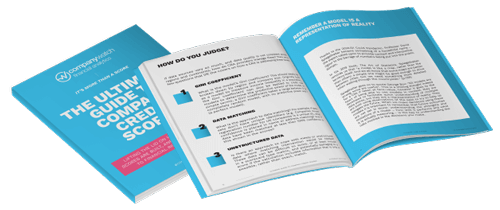Are We In A 'Perfect Storm' For Bad Debt And Business Insolvency?

In the past few years, we’ve experienced a snowball effect of consecutive market shocks. These events have pushed the UK economy into an unstable period. We’ve seen bad debt and business insolvency soar, and with them, Phoenixism. Struggling companies and unscrupulous directors are desperate to shake off debts and start again.
In this article, we’ll explore the conditions that led to this perfect storm of bad debt and business insolvency. We’ll also take a closer look at Phoenixism, the risks to your company, and how Company Watch can help tackle the problem.
Bad debt and business insolvencies soaring
Bad debt and insolvency are not always easy to uncover, and you need to be extra vigilant to spot the dangers. There are several factors that contributed to this escalation.
During the pandemic, healthy companies took on debt to survive. Many took out private loans or relied on government schemes. As a result, the number of indebted UK companies reached unprecedented levels; 1.5 million SMEs are struggling with bad debt in the UK. These issues were compounded by several other events:
- Global supply chain instability and an energy crisis arising from the Ukraine conflict.
- 14 consecutive interest rate hikes
- The worst of cost of living crisis in decades.
With interest rates now hitting 5.25%, many companies are struggling to stay afloat. The result - rising insolvencies.
We haven’t reached the dizzying heights of the 2008 financial crisis. But we have hit a 14-year high in insolvencies. High-interest rates are pushing the UK economy to the brink. A recent report has revealed:
- Around 7,000 UK businesses are expected to become insolvent in each quarter of 2024.
- In Q2 2023, there were over 6,700 insolvencies in the UK. This is more than double the rate seen during the pandemic.
- Compared with a normal period, these insolvencies are still 50% higher than the same quarter in 2019.
These rising insolvencies should give you cause for concern, as when a business becomes insolvent, the domino effect of debt is devastating. If you have links to an insolvent company, you are unlikely to reclaim any money owed. This can lead to a chain of business failures, and you could end up with bad debt.
The rise of the walking debt
Rising interest rates have affected insolvencies by pushing ‘zombie companies’ over the edge. Before the energy crisis, we had a period of low inflation, with low borrowing and low-interest rates. This encouraged the rise of zombie companies. While these companies had negative balance sheets, cheap borrowing allowed them to survive. With skyrocketing interest rates, these companies can no longer afford to operate and cover debt payments.
At Company Watch, we monitor these companies so you can get a full picture of the risks they present:
- There are currently 248,972 zombie companies.
- They have a total combined negative net worth of £128bn.
- The total combined debt within those companies is £223bn.
- 22,790 of these companies have a negative interest cover ratio. This means that any increase in interest rates puts them in jeopardy.
🛡️📲
Protect your business with our financial risk plans
The rise of the Phoenix
The current economic climate has caused company directors to become desperate. When bad debt and the threat of insolvency become overwhelming, business owners can turn to Phoenixism for a fresh start.
Phoenixism is when a company becomes insolvent and then remerges under a new name. The debt remains with the old company, while directors transfer the assets to the new company. They can pose a significant risk to your business, as they often leave behind a chain of unpaid debt. Unscrupulous directors can repeat the process over and over to avoid creditors indefinitely. If you aren’t careful, working with a Phoenix company could cost you dearly.
Phoenixism isn’t easy to spot. Directors will often go to great lengths to bury the evidence at Companies House. Standard credit checks usually won’t flag this behaviour, giving you a false sense of security.
We’ve created a tool to help protect you from the risks posed by Phoenixism and the lack of mandated ID verification at Companies House:
Enhanced Director Matching
- Our enhanced director matching tool uses machine learning to help you find company directors with a hidden history of insolvency in a matter of seconds.
- This tool analyses details of company directors and uses the data to indicate the likelihood of links to other companies or director profiles.
- By sorting through millions of registered directors, the tool matches director profiles that may have been created by the same person.

